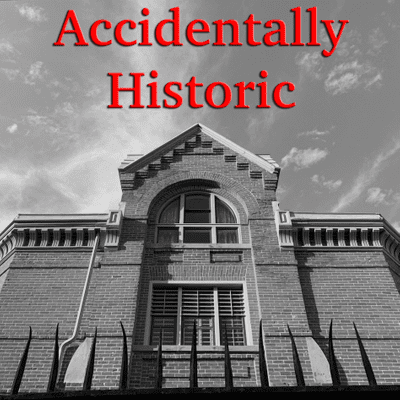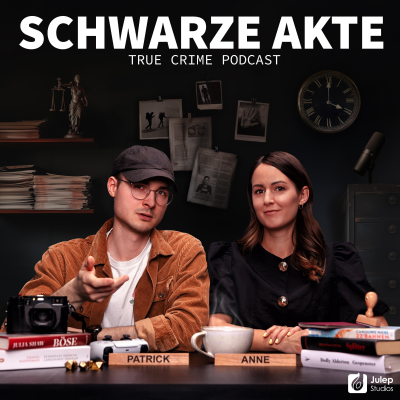
Accidentally Historic
Podcast von Historical Society of Pottawattamie County
Nimm diesen Podcast mit

Mehr als 1 Million Hörer*innen
Du wirst Podimo lieben und damit bist du nicht allein
Mit 4,7 Sternen im App Store bewertet
Alle Folgen
33 FolgenIs the American West a physical place or the concept of interacting with the wilderness and taming the land? Better represented by John Wayne winning the West and settling down living happily ever after, or the later Clint Eastwood version of the West as a place of drunkards and violence? Or perhaps it was as captured by Blazing Saddles and City Slickers as a wildly bigoted and backwards place that is nothing to fondly be looked back upon? And how does the Council Bluffs/Omaha Metro fit into all of this? In this episode Ardennes Stolp provides some thought-provoking reflections on how to interpret the American West.
This is episode Four of the Invisible Excellence podcast series. It takes the listener right into the operating tents of the Army’s first ever battlefield hospital that actually moved long the front lines with the action– Council Bluffs’ Unit K/Mobile #1. The group’s leader, surgeon and former Council Bluffs mayor Donald Macrae, Jr., set the tone in his notes: “The shelling was begun about midnight, and the whine and explosion of the projectiles continued until after daylight.” This episode focusses on the unit’s first camps in France, the challenges they aced, and the dogged persistence and courage they employed that redefined battlefield medicine. Guest is writer/researcher Brian Mainwaring.
The tale of the Army’s first functional MASH unit, Council Bluffs’ Mobile 1 (aka Unit K) continues in this episode as writer/researcher Brian Mainwaring delves into the details of how the camps were set up, how they moved from battle to battle near the front lines, and some of the day-to-day challenges they endured including shortages of equipment, manpower, fuel, and safe drinking water. If you have any questions or comments please email information@TheHistoricalSociety.org
Amelia Bloomer was born in New York but spent most of her adult life in Council Bluffs. Her name is associated with a garment worn by women and women’s rights, but there’s a lot more to the story than that. Amelia Bloomer dedicated her life to righting social wrongs, and when she arrived in Council Bluffs in 1855 she found a town that could very definitely benefit from her services. In this episode Dr. Warner talks with writer and researcher Sara Catterall about Amelia Bloomer’s very significant impact on social issues that included temperance, abolition, equal rights, and the 19th Amendment. For more information about Sara Catterall’s book, “Amelia Bloomer: Amelia Bloomer: Journalist, Suffragist, Anti-Fashion Icon” go to https://beltpublishing.com/products/amelia-bloomer-journalist-suffragist-anti-fashion-icon [https://beltpublishing.com/products/amelia-bloomer-journalist-suffragist-anti-fashion-icon] Our podcast guest, Sara, Catterall, is a writer with a Drama degree from NYU and an MLIS from Syracuse University. She was born in Ankara and grew up in South Minneapolis. She has worked as a librarian at Cornell University, as a reviewer and interviewer for Shelf Awareness, and as a professional book indexer. Her work has been published in the NEH’s Humanities magazine and The Sun magazine, and she co-authored Ottoman Dress and Design in the West: A Visual History of Cultural Exchange. She lives with her family near Ithaca, New York. The podcast was recorded via Zoom.
This episode continues the story of Mobile Hospital No, 1, also known as Unit K or the Council Bluffs Unit in World War I. In this episode writer/researcher Brian Mainwaring recounts events such as an early attempt to break up Unit K, its training and observation period with the British military, the full integration of Unit K’s roster into Mobile No. 1, preparation of the hospital’s personnel and inventory for its first full set-up and deployment there in mid-1918, and an incident in which a quartet of the officers discovered the rest of the group had been transferred ahead without them.























